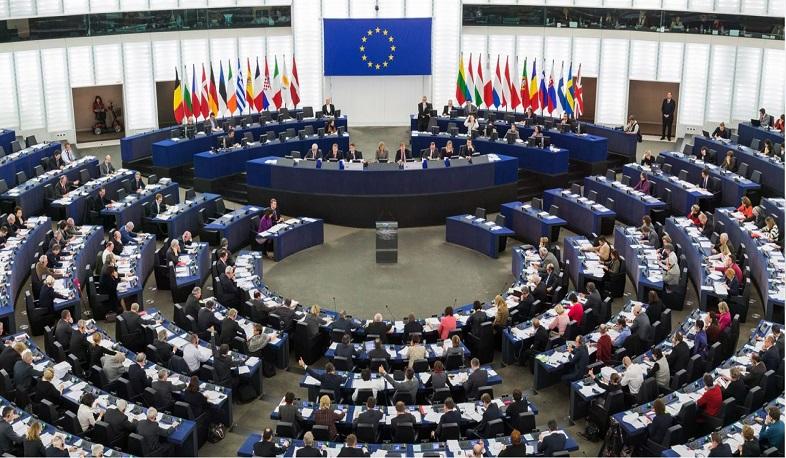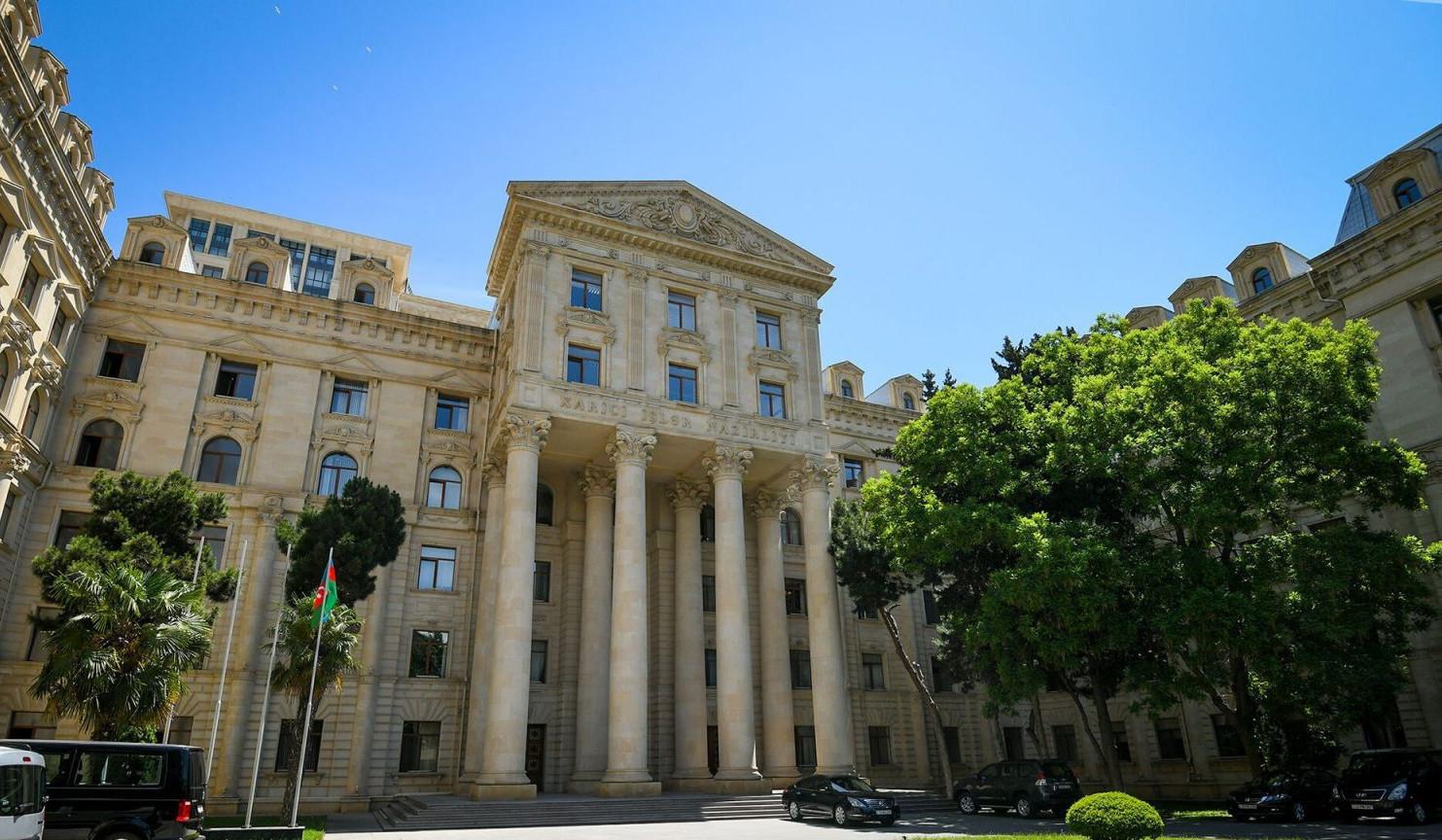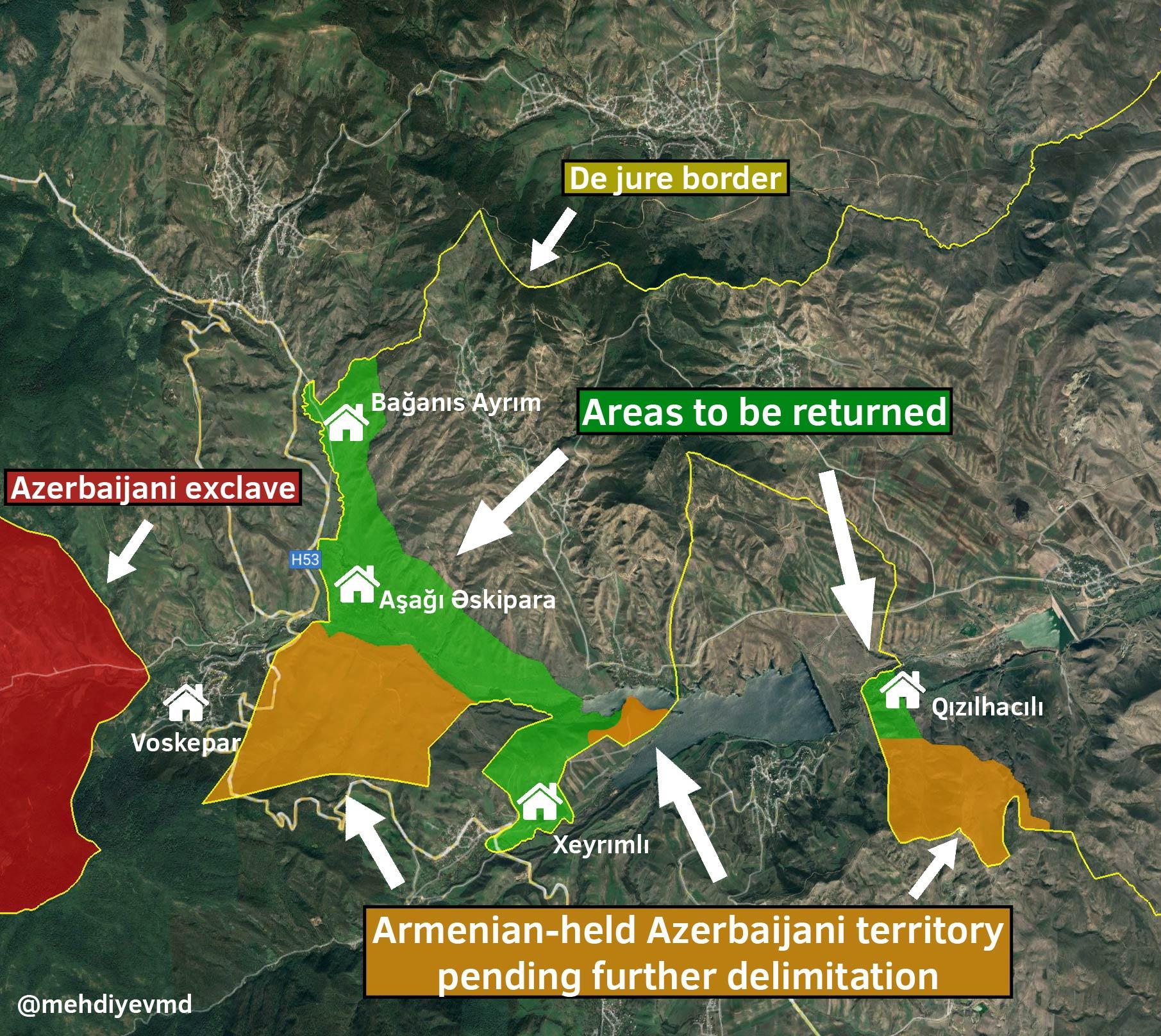Azerbaijan's response to European Parliament resolution A geopolitical analysis
The recent resolution by the European Parliament condemning Azerbaijan's human rights record has sparked a sharp response from the Azerbaijani parliament, accusing MEPs of maintaining a pro-Armenian bias. The European Parliament's resolution, passed on April 25 with an overwhelming majority (474 in favor, 4 against, 51 abstentions), has been met with strong opposition and condemnation from the Azerbaijani legislature.
The Milli Majlis, Azerbaijan's parliament, swiftly rejected the resolution as biased and politically motivated. They argue that the European Parliament has become a vehicle for anti-Azerbaijani interests, particularly those aligned with Armenian lobbying groups. This response underscores Azerbaijan's deep-seated concerns regarding what they perceive as a pro-Armenian bias within European institutions.

Armenian lobbying & influence
The Azerbaijani authorities have long accused certain European lawmakers of being influenced by Armenian lobbying efforts. They contend that MEPs with ties to Armenian diaspora groups prioritize Armenian interests over objective assessments of Azerbaijan's domestic affairs. This allegation reflects Azerbaijan's broader narrative of external interference aimed at undermining its recent territorial gains and diplomatic overtures towards Armenia.
The influence of the Armenian lobby within European political circles has been a longstanding concern for Azerbaijan. The well-coordinated efforts of Armenian diaspora groups, backed by historical narratives of the Nagorno-Karabakh conflict and Armenia's broader geopolitical alliances, have played a role in shaping perceptions within the European Parliament. Azerbaijan argues that this lobbying has distorted the discourse surrounding Azerbaijan's human rights record, painting an inaccurate picture that overlooks Azerbaijan's security concerns and the plight of internally displaced persons (IDPs) and refugees.

The backdrop of this resolution is shaped by Azerbaijan's military successes, particularly in the Second Karabakh War, which concluded with the liberation of territories from Armenian occupation. These strategic gains have reshaped regional power dynamics, positioning Azerbaijan as a significant player in the South Caucasus. The European Parliament's resolution is perceived by Azerbaijan as an attempt to stifle Baku's progress and tarnish its international reputation following these decisive victories.
Azerbaijan's territorial integrity and security considerations are central to its response to the European Parliament's resolution. The 30-year-long occupation of Azerbaijani lands by Armenia and the destruction of hundreds of villages and towns in and around Karabakh have left lasting scars on Azerbaijani society, with nearly one million IDPs and refugees displaced by decades of occupation. The Azerbaijani parliament argues that the EP resolution fails to acknowledge the humanitarian consequences of the Nagorno-Karabakh conflict and overlooks Azerbaijan's efforts to restore stability and rebuild communities in liberated territories.
Normalization efforts with Armenia
Azerbaijan's efforts to normalize relations with Armenia following the conflict have faced external scrutiny. The European Parliament's resolution coincides with Azerbaijan's goodwill gesture towards Armenia, including initial steps towards border delimitation. Baku argues that the resolution undermines these efforts by perpetuating a narrative that favors Armenia and disregards Azerbaijan's security concerns.
The resolution's timing, amid nascent efforts to establish diplomatic dialogue and resolve longstanding disputes with Armenia, is viewed by the Azerbaijani parliament as counterproductive. Azerbaijan's pursuit of regional stability and reconciliation is portrayed as incompatible with the European Parliament's stance, which is perceived as echoing the interests of Armenian lobbying groups rather than promoting genuine peacebuilding efforts in the South Caucasus.
Geopolitical implications
The resolution's geopolitical implications extend beyond Azerbaijan's borders. It intersects with broader regional dynamics, including the ongoing conflict between Azerbaijan and Armenia, and the strategic interests of external actors in the South Caucasus. Azerbaijan's response also reverberates a desire to assert its sovereignty and counter perceived attempts to curtail its influence in the region.
The South Caucasus region remains a geopolitical hotspot, with competing interests from global powers seeking to assert influence and secure strategic advantages. Azerbaijan's emergence as a regional power following the Second Karabakh War has shifted the equilibrium of power, prompting recalibrations in diplomatic engagements and security arrangements. The European Parliament's resolution is viewed through this lens of geopolitical competition, with Azerbaijan interpreting the resolution as a manifestation of broader efforts to constrain its regional ascendancy.

Azerbaijan's criticism of the European Parliament is not isolated but intersects with internal controversies within the legislative body. Allegations of unethical conduct involving MEPs and private business interests have raised questions about the integrity of decision-making processes. Azerbaijani authorities argue that such controversies undermine the credibility of European institutions and contribute to biased assessments of Azerbaijan's human rights record.
The transparency and accountability of European lawmakers have come under scrutiny in light of internal controversies involving unethical conduct and conflicts of interest. Azerbaijani argues that these controversies erode public trust in European institutions and compromise the objectivity of policymaking processes. The resolution condemning Azerbaijan's human rights record is viewed by Azerbaijan as symptomatic of systemic issues within the European Parliament, highlighting broader concerns about the politicization of human rights discourse and selective interventions in international affairs.
Azerbaijan's response underscores its commitment to sovereign decision-making and independent policymaking. Despite external pressures and criticism, Azerbaijan remains steadfast in its approach to regional affairs. Azerbaijani authorities emphasize their right to navigate domestic challenges without external interference, portraying the nation as resilient in the face of perceived Western agendas.
The notion of sovereignty is central to Azerbaijan's response to the European Parliament's resolution. Azerbaijan asserts its right to determine its domestic policies and defend its national interests without external interference. The resolution condemning Azerbaijan's human rights record is portrayed by the Azerbaijani parliament as an infringement on the nation's sovereignty, reflecting broader concerns about the selective application of human rights principles in international relations.
Conclusion
The European Parliament's resolution condemning Azerbaijan's human rights practices has elicited a robust response from Azerbaijani authorities, who view the resolution as emblematic of broader geopolitical dynamics in the South Caucasus.
Azerbaijan's accusations of a pro-Armenian bias within European institutions reflect deeper anxieties about external interference and the preservation of national sovereignty. Moving forward, the resolution's ramifications will continue to shape Azerbaijan's relations with the EU and highlight the complexities of international diplomacy in a region marked by historical tensions and strategic interests.







